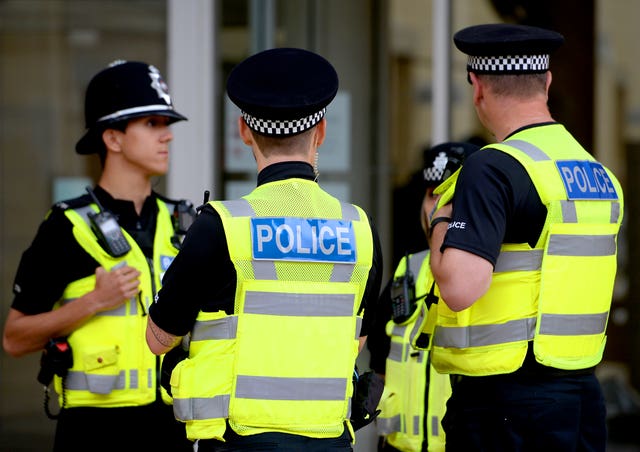
Almost a million public-sector workers – including teachers, hospital doctors and the military – are to receive above-inflation pay rises for a second year in succession, Chancellor Philip Hammond has confirmed.
Mr Hammond said the awards – following the recommendations of the independent pay review bodies – were in recognition of the need to recruit and retain the best staff.
The increases, which will be backdated to the start of the financial year, will see a rise of 2.75% for school teachers, 2.5% for consultants and dentists, 2.5% for police officers, 2.9% for armed forces personnel, at least 2.2% for prison officers, and 2% for senior civil servants and senior military staff.
The Treasury said they would mean the equivalent of a £1,000 increase for the average classroom teacher while hospital doctors will get an average £1,500.

In the Army, a corporal on average wages will get an additional £995 while police constables will get up to £978 more.
However, unions have warned that they will mean further cuts to services as they will have to be funded from within existing budgets.
The awards come after most public-sector workers received an above-inflation increase last year following the lifting of the 1% pay cap, originally put in place under the former coalition government’s austerity plans.
Mr Hammond, who has said he intends to resign if, as expected, Boris Johnson becomes prime minister, said they had been made possible due to the work done in rebuilding the public finances.
“Public-sector workers deliver Britain’s world-class public services and should be properly rewarded, which is why I’m confirming a second year of above inflation pay rises today,” he said.

“This is in recognition of the hard work of millions of people, including soldiers, teachers and doctors, and will help us recruit and retain the best staff.
“We are able to afford these pay rises because our balanced approach means we have reduced our debt while investing in public services, including pay.”
Theresa May, who leaves office on Wednesday, said: “Whether it’s keeping us safe, saving lives or educating the next generation, our public-sector workers deserve this pay rise in recognition of the brilliant job they do on a daily basis.
“In 2017 we ended the public sector pay cap and I’m pleased that we can build on this today by giving almost a million of our dedicated public servants an above inflation salary increase.”
For Labour, shadow treasury chief secretary Peter Dowd said the increase would do little to make up for nine years of “attacks” on public sector workers’ pay.
“The Tory Chancellor is refusing to cover the cost, meaning up to £2 billion in further cuts to frontline services,” he said.
“The Prime Minister once pledged an ‘end to austerity’, but her final act is to break that promise.”


Comments: Our rules
We want our comments to be a lively and valuable part of our community - a place where readers can debate and engage with the most important local issues. The ability to comment on our stories is a privilege, not a right, however, and that privilege may be withdrawn if it is abused or misused.
Please report any comments that break our rules.
Read the rules hereLast Updated:
Report this comment Cancel